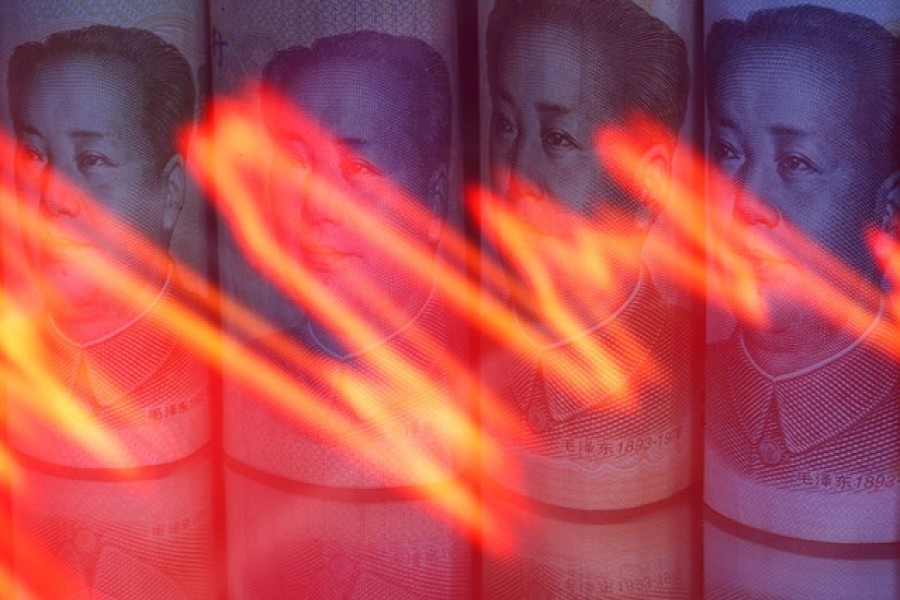China's central bank unexpectedly cut the rate on reverse repurchase agreements by 20 basis points on Monday, the largest in nearly five years, as authorities stepped up measures to relieve pressure on an economy ravaged by coronavirus pandemic.
The People's Bank of China (PBOC) said on its website that it was lowering the 7-day reverse repo rate to 2.20 per cent from 2.40 per cent.
The central bank did not give a reason for the move.
Ma Jun, a central bank adviser, told state media that China still has ample room for monetary policy adjustment and the rate decision took into consideration the return of Chinese companies to work, the global virus situation and a deterioration in the external economic environment.
It was the third cut in the 07-day rate since November.
In a note to clients, Capital Economics said "a lot more easing will be needed, especially on the fiscal front, to help the economy return to its pre-virus trend."
Chinese 10-year government bond futures initially responded positively to the cut, with the most-traded contract for June delivery rising as much as 0.23 per cent, before pulling back to last trade down 0.07 per cent.
"The unexpected cut is a response to the politburo meeting last Friday," said Xing Zhaopeng, markets economist at ANZ in Shanghai.
"The medium-term lending facility (MLF) rate and Loan Prime Rate (LPR) will be cut at the same pace this month. We believe this cut is a signal to urge all loans to refer LPR as the benchmark so that the PBOC can improve the effectiveness of monetary policy transmission."
At Friday's meeting, the ruling Communist Party's Politburo said the government will step up policy measures and tighten enforcement in a bid to achieve full-year economic and social development targets.
The government pledged to appropriately increase budget deficit ratio, guide market interest rates lower, and keep liquidity level reasonably ample.
The coronavirus hit the Chinese economy just as it was starting to show some signs of stabilising after growth cooled last year to its slowest pace in nearly 30 years.
Analysts expect China's economy to contract sharply in the first quarter due to widespread disruptions to business and consumer activity caused by the virus as authorities put in place tough public measures to contain the pandemic.
Nomura has lowered its annual GDP growth forecast to 1.0 per cent this year, and adjusted quarterly GDP forecasts to a 9.0 per cent annual contraction.
"We all expected the PBOC to announce some cuts. If it was deposit rates, it would be a big move, but now it seems to be repo only," said a senior portfolio manager.
On Monday, the PBOC injected 50 billion yuan ($7 billion) into money markets through seven-day reverse repos, breaking a hiatus of 29 trading days with no fresh fund injections via the liquidity tool.


